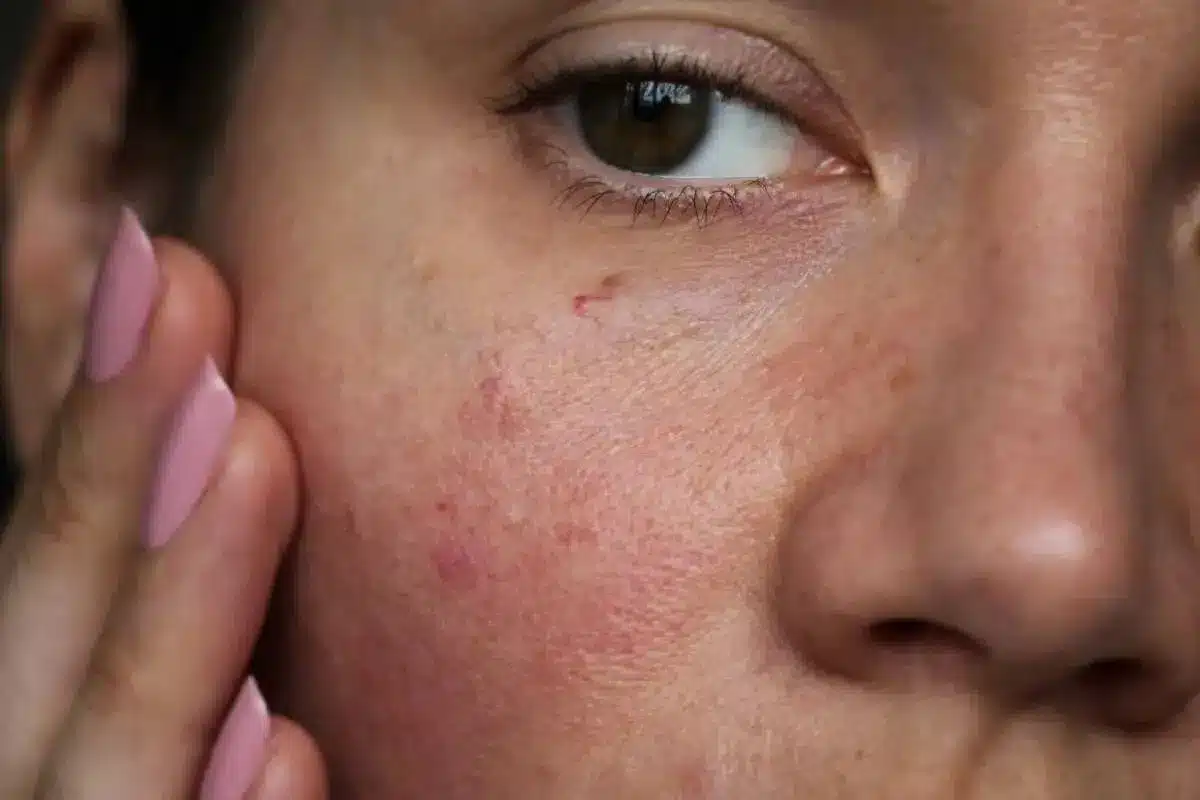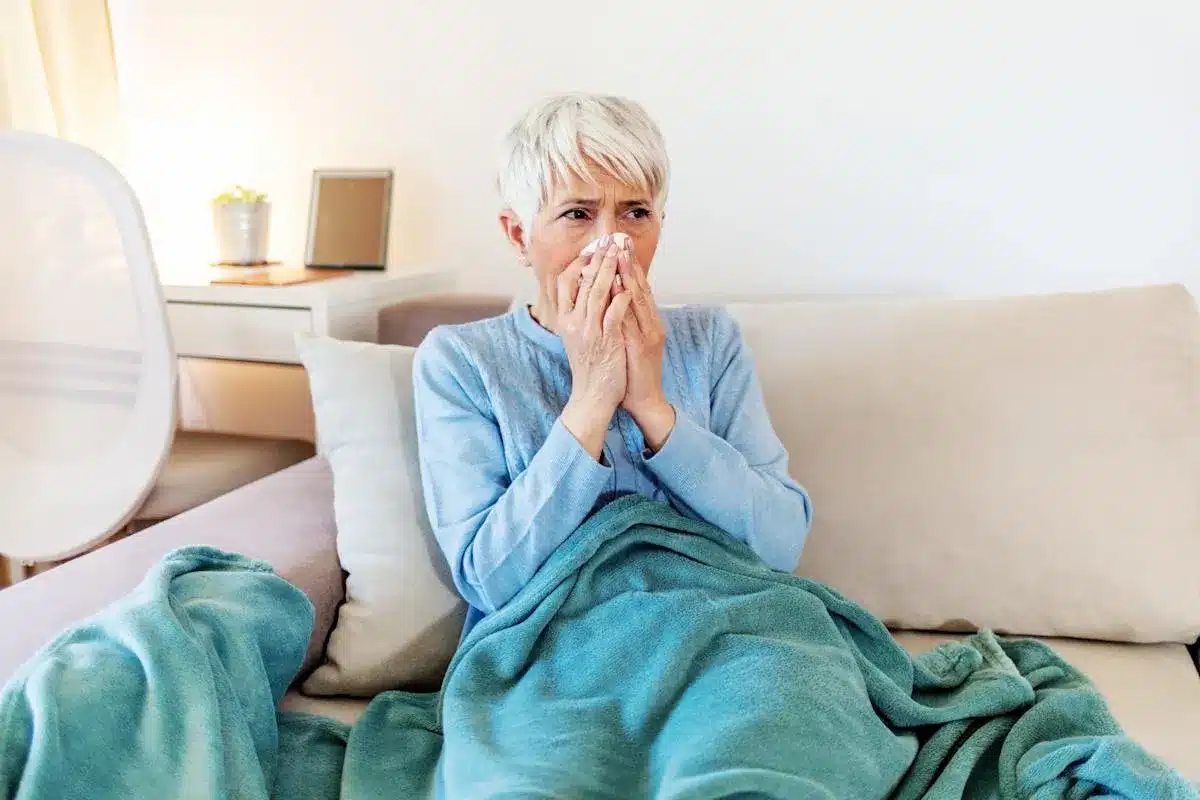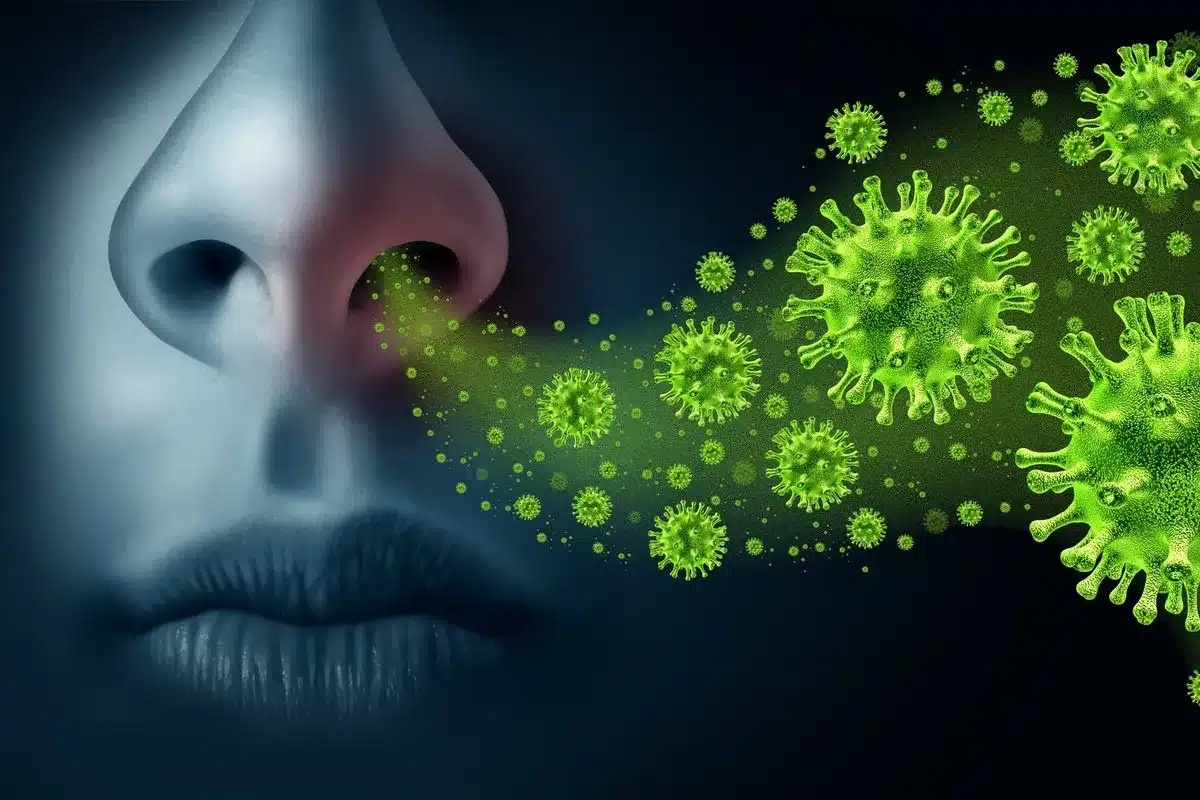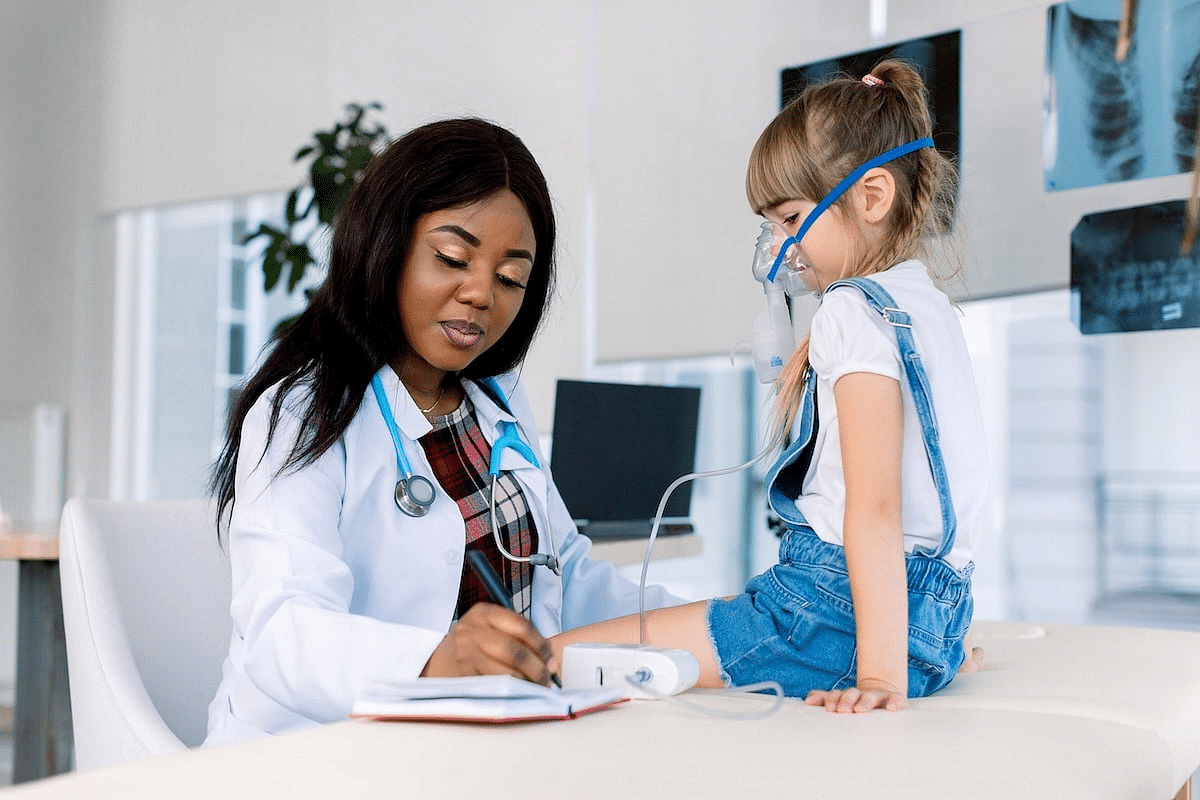
Hemoglobin is a key protein in red blood cells. It carries oxygen all over the body. Low levels can cause anemia, fatigue, and other health problems, affecting millions.
Keeping hemoglobin levels healthy is essential for well-being. We’ll look at the best medicine to increase hemoglobin. This includes medical treatments and natural methods. Knowing how to manage and improve hemoglobin can greatly improve your life quality.
Key Takeaways
- Understanding the importance of hemoglobin
- Recognizing the causes and symptoms of low hemoglobin
- Exploring medical treatments, including iron supplements for anemia
- Learning natural ways to boost hemoglobin levels
- Making lifestyle changes to support healthy hemoglobin
Understanding Hemoglobin and Its Importance
Hemoglobin is a protein in red blood cells that carries oxygen. It’s key for our body’s tissues and organs to work right.
What is Hemoglobin?
Hemoglobin is made of four chains and four heme groups, each with iron. It picks up oxygen in the lungs and sends it to our tissues. Its main job is to carry oxygen to our body’s tissues and carbon dioxide back to the lungs.
Normal Hemoglobin Levels
Hemoglobin levels change with age, sex, and other factors. Adult men usually have 14 to 18 grams per deciliter (g/dL) of hemoglobin. Women have 12 to 16 g/dL. Knowing these ranges helps doctors spot and treat hemoglobin problems.
| Category | Normal Hemoglobin Range (g/dL) |
| Adult Men | 14 – 18 |
| Adult Women | 12 – 16 |
Functions of Hemoglobin in the Body
Hemoglobin is vital for carrying oxygen to our body’s tissues and organs. It also takes carbon dioxide back to the lungs for us to breathe out. How well we get oxygen depends on our hemoglobin levels and how well it works.
Hemoglobin also helps keep our body’s acid-base balance by handling hydrogen ions. This is important for keeping our body’s pH level stable.
Common Causes of Low Hemoglobin Levels
Low hemoglobin levels can come from many sources. These include not getting enough nutrients, having chronic diseases, and losing blood. Knowing why this happens is important for finding and fixing the problem.
Iron Deficiency Anemia
Iron deficiency anemia is a big reason for low hemoglobin. It happens when the body doesn’t have enough iron to make hemoglobin. Iron is key for making hemoglobin, and without it, the body can’t get enough oxygen.
“Iron deficiency anemia is a big problem worldwide, affecting millions,” say health experts. We’ll look at how changing what we eat and taking iron supplements can help.
Vitamin Deficiencies
Vitamins B12 and folate are also important for making red blood cells. Not having enough of these vitamins can cause anemia, which means low hemoglobin.
It’s important to get enough of these vitamins through food or supplements. Foods high in vitamin B12 and folate include meat, fish, eggs, and leafy greens.
Chronic Diseases
Chronic diseases like kidney disease, cancer, and HIV/AIDS can also lower hemoglobin levels. These diseases can stop the body from making red blood cells or cause inflammation that slows down making red blood cells.
It’s important to manage these diseases to help with low hemoglobin.
Blood Loss
Blood loss from injuries, surgery, or heavy periods can also lower hemoglobin. Losing a lot of blood can use up the body’s iron, leading to iron deficiency anemia.
Finding and fixing the cause of blood loss is key to treating low hemoglobin from it.
In summary, low hemoglobin can come from many reasons. These include iron deficiency anemia, vitamin deficiencies, chronic diseases, and blood loss. Knowing the cause is the first step to treating it.
Symptoms and Diagnosis of Low Hemoglobin
It’s important to know the signs of low hemoglobin early. Low hemoglobin can cause many health problems. Knowing these signs is the first step to managing them well.
Common Symptoms
Low hemoglobin shows up in several ways. These include:
- Fatigue and Weakness: Feeling tired or weak is common. This is because the body’s tissues don’t get enough oxygen.
- Shortness of Breath: Low hemoglobin makes it hard for the body to get enough oxygen. This can cause shortness of breath even when doing light activities.
- Dizziness and Lightheadedness: Not enough hemoglobin can make you dizzy or lightheaded. This is because the brain doesn’t get enough oxygen.
- Cold Hands and Feet: Low hemoglobin can cause poor circulation. This makes hands and feet feel cold.
Diagnostic Tests
Diagnosing low hemoglobin involves blood tests. The main tests are:
- Complete Blood Count (CBC): This test checks different parts of the blood. It looks at hemoglobin levels, red blood cell count, and hematocrit.
- Hemoglobin Level Check: A test to measure the amount of hemoglobin in the blood.
- Iron Studies: Tests to check iron levels. They help find iron deficiency anemia.
When to See a Doctor
See a doctor if you have ongoing or severe symptoms of low hemoglobin. You should go if:
- You keep feeling tired or weak.
- You get short of breath during normal activities.
- You often feel dizzy or lightheaded.
Getting diagnosed and treated early can greatly help those with low hemoglobin.
Prescription Medications for Increasing Hemoglobin
Prescription medications are key in treating low hemoglobin levels. They offer different treatment options. These are used when diet changes and over-the-counter supplements don’t work.
Erythropoietin Therapy
Erythropoietin therapy uses recombinant human erythropoietin (rHuEPO) to boost red blood cell production. It’s great for those with chronic kidney disease, cancer, or HIV/AIDS. Erythropoietin therapy can greatly improve hemoglobin levels and cut down on blood transfusions.
Prescription-Strength Iron Supplements
For iron deficiency anemia, prescription iron supplements are effective. They have more iron than over-the-counter options and are better absorbed. Common prescription iron supplements include ferrous sulfate, ferrous gluconate, and iron polysaccharide complexes.
Other Prescription Medications
Other prescription meds treat conditions that cause low hemoglobin. Vitamin B12 injections help those with B12 deficiency. Folic acid supplements are for folate deficiency anemia. These treatments aim to fix the anemia’s cause and help make healthy red blood cells.
Working closely with a healthcare provider is crucial. They’ll choose the best prescription medication for you. The right treatment depends on your condition and medical history.
The Best Medicine to Increase Hemoglobin Levels

To find the best medicine for high hemoglobin, we must look at the cause. Hemoglobin levels can drop due to lack of nutrients, chronic diseases, or genetic issues.
Comparing Effectiveness of Different Treatments
There are many treatments for low hemoglobin, like iron supplements and erythropoietin therapy. Iron supplements are often the first choice for iron deficiency anemia, a common reason for low hemoglobin.
- Iron Supplements: Effective for iron deficiency anemia.
- Erythropoietin Therapy: Used for anemia caused by chronic diseases like cancer or kidney disease.
- Vitamin Supplements: Necessary for deficiencies in vitamins like B12 or folate.
Factors That Determine the Best Treatment
The best treatment depends on several things. These include the cause of low hemoglobin, how severe it is, and the patient’s health.
- The cause of low hemoglobin.
- The severity of the anemia.
- The patient’s medical history and current health status.
Personalized Treatment Approaches
Personalized treatment plans are key for managing low hemoglobin. We work with healthcare providers to create treatments that fit each patient’s needs.
“Personalized medicine is not just about treating the disease; it’s about treating the person who has the disease.”
” A healthcare professional’s perspective
By looking at each patient’s unique situation, we can make a treatment plan. It not only fixes the low hemoglobin issue but also helps with overall health and well-being.
Iron Supplements: Types and Effectiveness
There are many iron supplements out there, each with its own benefits. Choosing the right one is crucial for treating iron deficiency anemia. The type of supplement and the person’s needs play a big role in its effectiveness.
Iron supplements come in different forms. You’ll find ferrous sulfate, ferrous gluconate, ferrous fumarate, and iron polysaccharide complexes. Knowing what each offers helps both doctors and patients make better choices.
Ferrous Sulfate
Ferrous sulfate is a top choice for iron supplements. It has a lot of iron and works well for anemia. It comes in tablets, capsules, and liquids, fitting various needs.
But, it might upset your stomach, causing nausea, constipation, or stomach pain. Taking it with food or vitamin C can help lessen these side effects.
Ferrous Gluconate
Ferrous gluconate is gentler on the stomach than ferrous sulfate. It has less iron, so you might need more of it. It’s good for those who can’t handle the stomach issues from other iron supplements.
It’s often picked for people who react badly to other iron types or have had stomach problems with ferrous sulfate.
Ferrous Fumarate
Ferrous fumarate is a bioavailable iron supplement that fights anemia well. It has more iron than ferrous gluconate and is usually easier to take than ferrous sulfate.
You can find it in tablets and capsules. It’s taken by mouth.
Iron Polysaccharide Complexes
Iron polysaccharide complexes are made to be easy on the stomach. They mix iron with polysaccharide to cut down on stomach problems. They’re a good choice for those who can’t handle other iron supplements.
In summary, picking the right iron supplement depends on several things. These include your iron levels, how well you can handle different types, and your specific health needs. Knowing about the different iron supplements helps doctors create the best treatment plans for their patients.
- Ferrous Sulfate: High iron content, effective, but may cause gastrointestinal side effects.
- Ferrous Gluconate: Gentler on the stomach, lower iron content, suitable for sensitive individuals.
- Ferrous Fumarate: Highly bioavailable, effective, and often better tolerated than ferrous sulfate.
- Iron Polysaccharide Complexes: Gentle on the stomach, designed to minimize side effects.
Vitamin B12 Supplements for Hemoglobin Production
Vitamin B12 is key for making hemoglobin, a protein in red blood cells. It carries oxygen around the body. Without enough vitamin B12, you might get anemia, feel tired, and weak.
We’ll look at the different vitamin B12 supplements. They help keep your hemoglobin healthy. Each type has its own benefits and how well it’s absorbed.
Oral B12 Supplements
Oral vitamin B12 supplements are easy to use. They come in tablets, capsules, or lozenges and you can buy them without a prescription. But, some people with gut problems might not absorb them well.
Effectiveness: Oral B12 works for mild deficiencies. But, those with serious deficiencies or absorption problems might need something else.
B12 Injections
B12 injections go straight into the muscle. This way, they skip the digestive system. They’re often used for severe deficiencies or when the gut can’t absorb B12 well.
“B12 injections can provide a rapid increase in vitamin B12 levels, making them an effective treatment for severe deficiencies.” Doctors say injections are best for those with pernicious anemia or other absorption issues.
Sublingual B12
Sublingual vitamin B12 is placed under the tongue. It’s absorbed directly into the blood. This method might work better than oral supplements for some.
Sublingual B12 is a good option for those who don’t like injections. It’s easy to use and can be a better choice for some people.
“Sublingual supplementation provides a useful option for patients who struggle with traditional oral supplements or injections, enhancing patient compliance and outcomes.”
Medical Expert
In summary, there are many vitamin B12 supplements like oral, injectable, and sublingual. The right one depends on your needs, how bad your deficiency is, and what you prefer. Always talk to a doctor to find the best supplement for you.
Folic Acid and Its Role in Hemoglobin Synthesis

Folic acid is key in making hemoglobin, a protein in red blood cells. It carries oxygen around the body. Making hemoglobin needs many nutrients, and folic acid is very important.
Recommended Dosage
Adults need 400 micrograms (mcg) of folic acid every day. Pregnant women should get 600-800 mcg daily. This is because their bodies need more during pregnancy. Always talk to a doctor to find out how much you need.
Key Considerations for Folic Acid Dosage:
- Adults: 400 mcg/day
- Pregnant Women: 600-800 mcg/day
- Breastfeeding Women: 500 mcg/day
Food Sources of Folic Acid
Folic acid is found in many foods, making it easy to get enough. Leafy greens, legumes, and fortified cereals are great sources.
Top Food Sources of Folic Acid:
- Spinach
- Lentils
- Asparagus
- Broccoli
- Avocado
Folic Acid Supplements
Some people might need supplements because of health issues or diet. There are many types of folic acid supplements, like tablets and liquids.
Benefits of Folic Acid Supplements:
- Helps prevent folic acid deficiency
- Supports hemoglobin production
- Essential for fetal development during pregnancy
Always talk to a doctor before taking supplements. They can help with the right amount and any possible side effects.
Vitamin C and Other Supporting Nutrients
Vitamin C helps iron absorption, which is key for healthy hemoglobin. Iron supplements are important for low hemoglobin. But, other nutrients also help in making hemoglobin and keeping us healthy.
Enhancing Iron Absorption with Vitamin C
Vitamin C boosts the absorption of iron from plant foods. Eating foods high in vitamin C with iron-rich plants can help. Adding vitamin C-rich foods to meals can make iron supplements work better.
Foods High in Vitamin C:
- Citrus fruits (oranges, lemons)
- Strawberries
- Bell peppers
- Broccoli
Copper and Hemoglobin Production
Copper is vital for making hemoglobin. It helps in making hemoglobin and keeps red blood cells healthy. Not enough copper can lower hemoglobin levels, so eating copper-rich foods is important.
Foods Rich in Copper:
- Nuts (almonds, cashews)
- Legumes (lentils, chickpeas)
- Shellfish
Other Supportive Vitamins and Minerals
Other nutrients also help with hemoglobin production and health. Vitamin A and beta-carotene in colorful fruits and veggies help red blood cells. Eating a variety of foods is key for good hemoglobin levels.
| Nutrient | Role in Hemoglobin Production | Food Sources |
| Vitamin C | Enhances iron absorption | Citrus fruits, strawberries, bell peppers |
| Copper | Supports hemoglobin synthesis | Nuts, legumes, shellfish |
| Vitamin A/Beta-carotene | Contributes to healthy red blood cells | Colorful fruits and vegetables (carrots, sweet potatoes) |
Knowing how these nutrients help us can improve our hemoglobin levels. A balanced diet and supplements are key.
Iron-Rich Foods to Boost Hemoglobin Naturally
To naturally boost hemoglobin, it’s key to eat foods high in iron. Adding these foods to your diet helps keep hemoglobin levels healthy. This is crucial for oxygen delivery throughout the body.
Animal-Based Iron Sources
Animal-based iron sources are easier for the body to absorb than plant-based ones. Some top animal-based iron sources are:
- Red Meat: Beef, lamb, and venison are rich in iron, especially heme iron, which the body absorbs well.
- Poultry: Chicken and turkey have iron, but the amount depends on the cut and cooking method.
- Fish and Seafood: Fish and seafood like clams, sardines, and anchovies are also iron-rich.
Plant-Based Iron Sources
For those on a plant-based diet, there are many iron-rich foods. These can help boost hemoglobin levels. Some examples are:
- Legumes: Beans, lentils, and chickpeas are iron-rich, along with fiber and protein.
- Leafy Greens: Spinach, kale, and collard greens are full of iron and other important vitamins and minerals.
- Nuts and Seeds: Pumpkin seeds, sesame seeds, and sunflower seeds are good iron sources.
- Fortified Cereals: Many breakfast cereals are fortified with iron, making them a handy option.
Combining Foods for Better Iron Absorption
Eating iron-rich foods is important, but so is improving iron absorption. Vitamin C can help a lot with this. It boosts the absorption of non-heme iron in plant-based foods.
Here are some tips for better iron absorption:
- Pairing Iron-Rich Foods with Vitamin C: Drinking orange juice or having a salad with citrus vinaigrette with your iron-rich meal can help.
- Avoiding Inhibitors: Be aware of foods and drinks that block iron absorption, like coffee and tea. Try to have them separately from iron-rich meals.
Natural Remedies and Herbal Supplements
Natural remedies and herbal supplements can help manage low hemoglobin levels. They work alongside traditional treatments to support health and boost hemoglobin production.
Nettle Leaf
Nettle leaf is packed with iron and nutrients that help make hemoglobin. It comes in tea, capsules, and extracts for easy use.
Nettle Leaf Benefits:
- Rich in iron and other essential minerals
- May help alleviate symptoms of iron deficiency
- Available in multiple forms for easy consumption
Yellow Dock Root
Yellow dock root is known for its iron content, which supports hemoglobin levels. It’s often paired with other natural remedies.
Yellow Dock Root Benefits:
- Contains iron and other nutrients beneficial for hemoglobin
- May help improve digestion and nutrient absorption
- Can be consumed as a tea or in supplement form
Blackstrap Molasses
Blackstrap molasses is a great source of iron and minerals. It’s a natural way to increase iron levels.
Blackstrap Molasses Benefits:
- High in iron content
- May help alleviate iron deficiency symptoms
- Can be easily incorporated into the diet
Other Herbal Remedies
Herbs like dong quai, spirulina, and sesame seeds also support hemoglobin levels. Always talk to a healthcare provider before adding new supplements.
| Herbal Remedy | Key Benefits | Forms Available |
| Nettle Leaf | Rich in iron, supports hemoglobin production | Tea, capsules, extracts |
| Yellow Dock Root | Contains iron, improves digestion | Tea, supplements |
| Blackstrap Molasses | High in iron, alleviates deficiency symptoms | Dietary supplement |
Always check with a healthcare professional before starting any new herbal supplements. This ensures they’re safe and right for you.
Lifestyle Changes to Support Hemoglobin Levels
A balanced lifestyle is key for healthy hemoglobin levels. Regular exercise and staying hydrated are crucial. These habits help support hemoglobin production and overall health.
Exercise and Hemoglobin
Exercise boosts health and can help hemoglobin levels. It stimulates erythropoietin production, a hormone that makes red blood cells. This supports hemoglobin production.
Different exercises affect hemoglobin levels differently. For example:
| Exercise Type | Impact on Hemoglobin |
| Aerobic Exercises (e.g., running, cycling) | Improves cardiovascular health, enhancing oxygen delivery and potentially increasing hemoglobin levels. |
| Anaerobic Exercises (e.g., weightlifting) | Builds muscle mass, which can improve overall health but may not directly impact hemoglobin levels. |
| Yoga and Stretching | Enhances flexibility and reduces stress, indirectly supporting overall health. |
Hydration
Drinking enough water is crucial for healthy blood. Even mild dehydration can decrease blood volume. This can affect hemoglobin levels and health.
To stay hydrated:
- Drink at least eight glasses of water per day.
- Check your urine to make sure it’s pale yellow or clear.
- Avoid too much caffeine and alcohol, as they can make you lose water.
Avoiding Hemoglobin Inhibitors
Some substances can harm hemoglobin production. Knowing these can help avoid them.
Common inhibitors include:
- Caffeine: Too much can stop iron from being absorbed.
- Alcohol: Drinking a lot can lead to nutritional problems and lower hemoglobin.
- Certain medications: Some drugs can affect hemoglobin levels. Talk to your doctor about any concerns.
By exercising regularly, staying hydrated, and avoiding harmful substances, you can support your hemoglobin levels. These lifestyle changes are key for better health.
Managing Side Effects of Hemoglobin Treatments
Success in treating hemoglobin levels depends on managing side effects. Iron supplements, a common treatment, can cause unwanted effects. These effects can make it hard for patients to stick to their treatment.
Common Side Effects of Iron Supplements
Iron supplements are key in treating iron deficiency anemia. But, they can lead to side effects like:
- Gastrointestinal issues such as nausea, constipation, and diarrhea
- Abdominal pain and cramping
- Dark stools or staining of teeth
These side effects can be uncomfortable. They might make patients stop taking their treatment.
Minimizing Gastrointestinal Issues
To lessen side effects from iron supplements, try these:
- Take iron supplements with food: Eating with iron supplements can ease stomach upset, but might lower iron absorption.
- Start with a low dose: Begin with a small dose and slowly increase it to help your body adjust.
- Switch to a different iron formulation: Some iron types, like iron polysaccharide complexes, might be easier to take.
Talking to a healthcare provider about these options is important to find the best solution.
When to Switch Treatments
If side effects don’t go away or are too bad, it’s time to think about other treatments. This could mean:
- Changing the type of iron supplement: Some people find one iron type easier to take than another.
- Intravenous iron therapy: For those who can’t take iron by mouth, IV iron is a good alternative.
- Addressing underlying causes: Treating the root cause of low hemoglobin might make supplements unnecessary.
Managing side effects is key to successful hemoglobin treatment. Knowing about side effects and how to reduce them helps patients stick to their treatment. This leads to better health outcomes.
Special Considerations for Different Populations
Different groups have special needs for healthy hemoglobin levels. Age, health, and lifestyle play big roles in what each person needs.
Pregnant Women
Pregnant women need more iron because of the growing fetus and their own blood volume. Iron deficiency anemia is common and can cause problems. It’s important for them to eat iron-rich foods and maybe take supplements.
- Increase iron intake through diet and supplements
- Monitor hemoglobin levels regularly
- Consult healthcare providers for personalized advice
Children and Adolescents
Young people need iron for growing and developing. Iron deficiency is common in this age group. It’s key to make sure they get enough iron from food or supplements.
- Provide iron-rich foods in their diet
- Monitor for signs of anemia
- Consult a pediatrician for guidance on iron supplementation
Elderly Patients
Older adults might see their hemoglobin levels drop for many reasons. This includes chronic diseases, bad nutrition, or side effects from medicines. Regular check-ups and personalized nutrition advice are very important.
- Regularly monitor hemoglobin levels
- Adjust diet to include iron and vitamin-rich foods
- Review medications that may affect hemoglobin
Athletes
Athletes, especially those in endurance sports, might need more hemoglobin. This is because their bodies use more red blood cells. Keeping an eye on hemoglobin levels and adjusting diet and training can improve performance.
- Monitor hemoglobin levels regularly
- Adjust diet to support hemoglobin production
- Consider consulting a sports nutritionist
Monitoring Progress and Adjusting Treatment
Managing low hemoglobin levels means keeping a close eye on progress and tweaking treatment plans. We’ve talked about different treatments like iron and vitamin B12 supplements, and making lifestyle changes. It’s key to do regular follow-up tests to see how well these treatments are working and make changes if needed.
Follow-up Testing
Regular tests are vital for managing low hemoglobin levels. They help doctors check if the current treatment is working and make any needed changes. Tests like complete blood counts (CBC) are used to check hemoglobin levels and other blood factors.
Expected Timeline for Improvement
The time it takes to see improvements in hemoglobin levels varies. It depends on the cause of low hemoglobin and the treatment used. Usually, people start to see better results in a few weeks to a few months.
For example, iron supplements can start to show results in 6-8 weeks.
When to Consider Alternative Treatments
If tests show hemoglobin levels aren’t getting better, it might be time to try something else. This choice should be made with a doctor’s help. They can look at the situation and suggest the best next steps.
Reasons for changing treatment include not seeing enough improvement, dealing with side effects, or having conditions that affect treatment success.
By watching progress closely and being ready to change treatment plans, we can better manage low hemoglobin levels. This helps improve health outcomes for patients.
Conclusion
Managing hemoglobin levels well needs a mix of medical care, diet changes, and lifestyle tweaks. We’ve looked at treatments like medicines, iron, and vitamin B12 supplements. We talked about how they work and their possible side effects.
Eating a balanced diet full of iron, folic acid, and vitamin B12 is key. Foods like red meat, spinach, and fortified cereals help raise hemoglobin. Also, staying active, drinking enough water, and not smoking can help keep hemoglobin healthy.
Knowing why hemoglobin is low and treating it in many ways can really help. It’s smart to talk to a doctor to find the right treatment. By following these tips, you can improve your health and feel better.
FAQ
What is the best medicine to increase hemoglobin levels?
The best medicine for low hemoglobin varies by cause. Iron, vitamin B12, and folic acid are often used. Erythropoietin therapy is sometimes recommended for specific conditions.
How can I increase my hemoglobin levels naturally?
Eat foods rich in iron like red meat, spinach, and fortified cereals. Vitamin C boosts iron absorption, so add citrus fruits and bell peppers to your diet. Avoid tea and coffee with meals to improve iron absorption.
What are the symptoms of low hemoglobin?
Low hemoglobin can cause fatigue, weakness, and pale skin. You might also feel short of breath, dizzy, or have headaches. Severe cases can harm your heart and overall health.
How do iron supplements work to increase hemoglobin?
Iron supplements replenish the body’s iron stores, which are essential for hemoglobin production. There are different types, like ferrous sulfate, and the right one depends on your needs and how well you tolerate it.
Can vitamin B12 deficiency cause low hemoglobin?
Yes, a vitamin B12 deficiency can lower hemoglobin levels. Vitamin B12 is vital for making red blood cells. Taking vitamin B12 supplements can help those with a deficiency.
How does folic acid help in hemoglobin synthesis?
Folic acid is crucial for making red blood cells and hemoglobin. A lack of folic acid can cause anemia. Taking folic acid supplements can improve hemoglobin levels.
Are there any lifestyle changes that can support hemoglobin levels?
Yes, regular exercise and staying hydrated can help. Avoid too much tea or coffee, as they can block iron absorption. Eating a balanced diet with iron, vitamin B12, and folic acid is also key.
What are the common side effects of iron supplements?
Iron supplements can cause stomach issues like constipation, nausea, and cramps. Taking them with food or switching types can help reduce these side effects.
How often should I have my hemoglobin levels checked?
How often to check hemoglobin levels varies by individual and health needs. Follow-up tests are usually needed after starting treatment to adjust the plan as needed.
Can athletes benefit from hemoglobin-boosting supplements?
Athletes might benefit from supplements if they have iron deficiency or other nutritional gaps. Always talk to a healthcare professional before starting any supplements to ensure they’re safe and necessary.
Are there any natural remedies that can help boost hemoglobin?
Yes, natural remedies like nettle leaf, yellow dock root, and blackstrap molasses might help. But, always check with a healthcare professional before using herbal supplements to make sure they’re safe and effective.
References
- Reinhardt, U. et al. (2005). Increased hemoglobin levels and improved quality-of-life in cancer patients receiving chemotherapy with epoetin alfa. Supportive Care in Cancer, 13(3), 178-184. https://pubmed.ncbi.nlm.nih.gov/15793226/
- Medanta. (2025). Blood test for cancer: Can blood tests detect cancer? Retrieved fromhttps://www.medanta.org/patient-education-blog/blood-test-for-cancer-can-blood-tests-detect-cancer
- Burns, C. D. (2021). Anemia and red blood cell transfusion in the adult non-critical care patient: guidelines and considerations. Annals of Blood, 6, 12. https://aob.amegroups.org/article/view/6707/html








